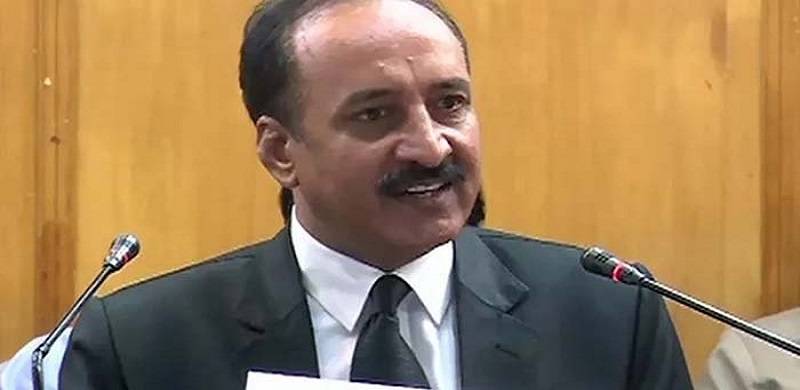
Supreme Court Bar Association of Pakistan (SCBAP) President Ahsan Bhoon has condemned the Prevention of Electronic Crime Act (Amendment) 2016 (PECA), announcing that the association will challenge its promulgation in the court.
"Under the guise of PECA Ordinance, the ruling elite has once again launched a vicious agenda to cut throat its political opponents and to silence those who believe in freedom of speech, opinion, and expression, so as to hide its insane and continuous failures," a press statement issued by the SCBAP on Tuesday read.
Also condemning the Election (Amendment) Bill 2017, the statement relayed that both ordinances were "strictly ultra-vires to the Constitution".
https://twitter.com/HasnaatMalik/status/1496047975642157056
Following suite, the Sindh High Court Bar Association (SHCBA) issued a press release 'unequivocally' condemning the PECA ordinance, which it termed a 'BLACK LAW' taking issue with the President's promulgation of the ordinance without consultation from Parliament first.
"What the SCHBA finds most alarming is that by virtue of these oppressive amendments, the so-called sacred cows in authority that wish to be above all and any criticism (whether in the discharge of their public duties or in their personal affairs), can bring about an action to sue any critic through a proxy / member of the public!" the SHCBA press release read.
https://twitter.com/FariehaAziz/status/1496054224257536001
On Sunday, President Arif Alvi signed the ordinance which, among other measures, increased the jail term for defamation from three to five years; broadened the scope of “a person” to include “a member of the public in respect of a public figure or a holder of public office;” and made online public defamation a cognisable and non-bailable offence.
"Under the guise of PECA Ordinance, the ruling elite has once again launched a vicious agenda to cut throat its political opponents and to silence those who believe in freedom of speech, opinion, and expression, so as to hide its insane and continuous failures," a press statement issued by the SCBAP on Tuesday read.
Also condemning the Election (Amendment) Bill 2017, the statement relayed that both ordinances were "strictly ultra-vires to the Constitution".
https://twitter.com/HasnaatMalik/status/1496047975642157056
Following suite, the Sindh High Court Bar Association (SHCBA) issued a press release 'unequivocally' condemning the PECA ordinance, which it termed a 'BLACK LAW' taking issue with the President's promulgation of the ordinance without consultation from Parliament first.
"What the SCHBA finds most alarming is that by virtue of these oppressive amendments, the so-called sacred cows in authority that wish to be above all and any criticism (whether in the discharge of their public duties or in their personal affairs), can bring about an action to sue any critic through a proxy / member of the public!" the SHCBA press release read.
https://twitter.com/FariehaAziz/status/1496054224257536001
On Sunday, President Arif Alvi signed the ordinance which, among other measures, increased the jail term for defamation from three to five years; broadened the scope of “a person” to include “a member of the public in respect of a public figure or a holder of public office;” and made online public defamation a cognisable and non-bailable offence.

